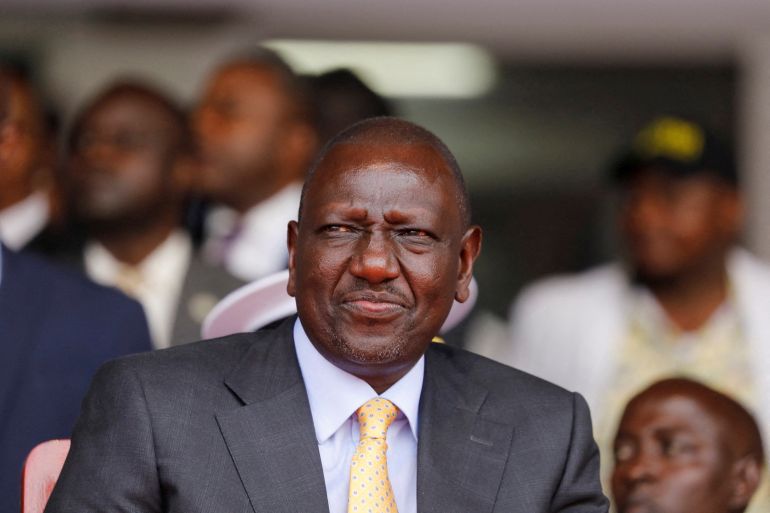Kenya reinstates fuel subsidy after months of violent protests
President Ruto removed fuel and maize flour subsidies in September and increased taxes this year.

Kenya has reinstated a small subsidy to stabilise retail fuel prices for the next 30 days, the energy regulator says, in a reversal of government policy after public anger over the high cost of living.
After taking office in September, President William Ruto removed fuel and maize flour subsidies put in place by his predecessor, saying he preferred subsidising production rather than consumption.
Keep reading
list of 4 itemsCanada’s Trudeau government asks rich to pay more in pitch to Gen Z
The Take: How much of Americans’ tax money funds war?
Spanish prosecutors accuse Real Madrid manager Carlo Ancelotti of tax fraud
The move was also aimed at cutting government spending as the government seeks to get a handle on debt repayments that have forced it to deny market speculation about a possible default.
But the subsidy cuts as well as recent tax hikes have increased living costs and contributed to violent anti-government protests in recent months.
The Energy and Petroleum Regulatory Authority (EPRA) said late on Monday that the maximum retail price of a litre (0.26gal) of petrol would remain constant at 194.68 shillings ($1.35), shielding consumers from an increase of 7.33 shillings ($0.05), which the government will shoulder through a price stabilisation fund.
Retail fuel prices are set in the middle of each month. The government also applied small subsidies on kerosene and diesel, EPRA said.
The regulator did not provide an explanation for the government’s decision. Officials from EPRA, the Ministry of Energy, and the National Treasury and Economic Planning did not immediately respond to requests for comment.
Fuel prices shot up when Ruto removed the subsidies. They spiked again in July after the government pushed a contentious law through parliament that doubled the fuel tax.
The protests organised in response to that law were called off last month after the opposition and Ruto agreed to talks to resolve their differences, the second such attempt this year.
Both sides agreed that opposition to a financial bill signed into law in June “should be decided in court”, where it is being challenged by the opposition. In July, an appeals court lifted a suspension placed on a law that would double the value-added tax on fuel and introduce a new housing levy.